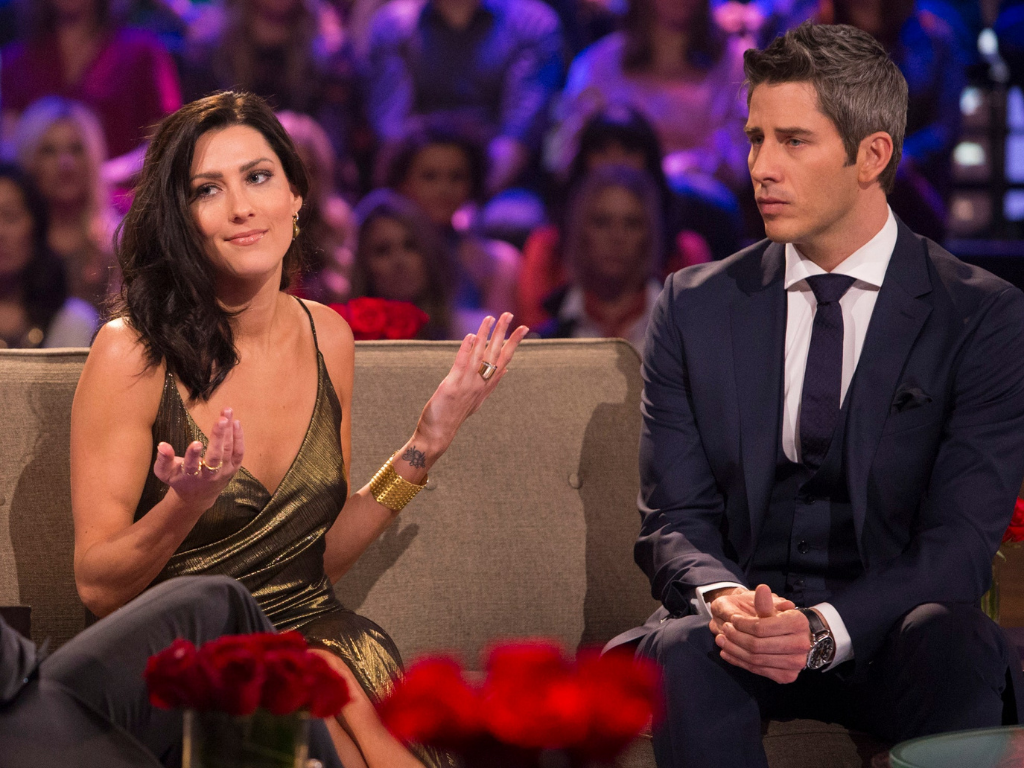The reality dating show chokehold: Why we love them, and why we probably shouldn’t
Love through a screen (or on it)
Let’s admit it: We, as a society, are strangely a little too invested in everything to do with love. This is extremely obvious in the way we’re drawn to the juicy details of other people’s love lives, even when we don’t even know who they actually are. That being said, it’s not as if we are completely to blame for our own odd behaviour. The sappy “it was written in the stars” sort of love is constantly being shoved down our throats in the form of movies, music, books, art, you name it.
These glossy portrayals of romance have skewed our expectations and perceptions of love beyond reality. Then there are the celebrities and influencers whose love lives unfold over social media, making the public the third party in their relationships. It’s not all bad, however: witnessing people falling in love can be therapeutic and healing at times—and hey, a little daydreaming never hurt anyone. The hope that we’ll find love someday keeps us going, in a time where it’s difficult to meet new people and put ourselves out there, even when we’re more than ready for new love and a special connection that gives us butterflies.
View this post on Instagram
All these factors have laid out the foundation for a highly successful range of reality dating shows to grace our screens. Most tend to feature a similar formula: a flock of attractive singles sign up for what is basically an extremely sped-up dating process, with shows like Love is Blind going as far as to follow participants of the show to their wedding day. Ironically enough, these dating shows are notorious for having very low success rates when it comes to “happily ever after”, as the singles who coupled up on screen tend to break it off soon after the cameras stop rolling and reality sets in.
So, knowing that reality dating shows offer not just unrealistic but at times nonsensical depictions of love, why are we still so obsessed with them? Shows like Love Island have become franchises with multiple seasons, while Single’s Inferno took the Internet by storm beyond its native South Korea.
Here’s why this writer thinks they’re all the buzz right now, as well as a few things to learn and take note of from these shows.
We’re drawn to the drama (despite our best intentions)
Whether or not you enjoy reality dating shows every now and then, one thing is for certain: we’re drawn to messy situations when it doesn’t involve us—and boy oh boy, are dating shows full of it. The fact is that many of us have experienced turbulent times, so watching other individuals go through something similar provides us with a sense of solidarity and comfort. (But keep in mind that what’s shown is usually exaggerated, due to editing that relies on shock value). The rollercoaster of emotions we get while watching the unfolding drama can also get pretty addictive, so much so that we keep coming back for more even when we know that the show is exploitative and ethically grey.
Check out: 5 Ways to get over an ex (or someone you dated)
These shows allow us to live, love, and learn vicariously
It’s not uncommon for reality dating shows to feature some pretty unsavoury personalities (again, it’s all for the drama). While participants try to find love over the course of 15 to 20-ish episodes, viewers are treated to a variety of occurrences, from the sweetest gestures to the most manipulative betrayals. For those whose dating lives are on an indefinite pause (because of the pandemic or other more personal, uncontrollable factors), reality dating shows offer a taste of what it’d feel like to be back in the game. Cheering on our favourite couples, and yelling at our screens in despair when contestants mess up big time, is not all that different from how we witness and react to our friends’ love lives—even though we’re not in the relationship, we feel like we’re a part of it.
As the courtship process on these shows is sped up, the nitty-gritty and not-so-nice aspects—of people and of being in love/lust—rise to the surface a lot faster. When we watch the immediate aftermath of these behaviours, we learn a thing or two about what to look out for in ourselves as well as future love interests. We go through the throes of finding love and sustaining a relationship with the participants, living vicariously through them from the first spark.
Ah, meeting new people…. remember what that felt like?
It’s a form of escape
Even if you’re currently in a happy and healthy relationship, reality dating shows can provide a fresh, new take on romance… and by that, we mean dating with a higher budget. Watching participants go on expensive beach dates, yacht tours, roof-top dinners, and helicopter rides all the time is exhilarating. Who wouldn’t want to be romanced by gorgeous individuals while on a tropical island vacation? For those of us who aren’t the sort to appear on dating shows, getting to watch people live this out is (like most forms of entertainment) a retreat from the mundaneness of everyday life.
Despite the drama, life on reality dating shows seem so much more carefree and exciting compared to regular life
So, what’s so bad about reality dating shows?
Here’s where the discussion gets a little heated, starting with the structure of reality dating shows. The same time constraints, pitch-perfect lines, and limitless budgeting that make dating shows a swooping fairytale makes them completely unrealistic and unattainable. It’s no wonder that so many couples from these shows don’t work out in the real world. The grandeur of the temporary snowglobe they live in for the duration of filming the show does not prepare them for real-life problems.
While on the programme, obstacles like distance, contrasting careers and schedules, disagreeable family and friends, and differences in values are not present to foretell the overall incompatibility of the couple. The primary thing the singles have to operate on is initial attraction and the little that they know about each other. Some get into exclusive relationships while still on the show, and though a few weeks may not seem like too short a time, it’s tough to imagine committing to someone before seeing how they live their regular life.
Of course you are! We all saw it coming
A majority of dating shows on TV are also produced in Western countries, and tend to push a very white-centric way of courting and romance. Take a look at the casts of popular shows like Love Island, The Bachelor and The Bachelorette—the lack of diversity will astound you. Even in the age of social justice and demands for Hollywood to do its part in correcting unbalanced racial and ethnic representation in the media, many shows still tend to feature a predominantly white cast, which then begs the question of how cultures unique to other races would affect the chances of finding love in a reality dating show.
Furthermore, many dating shows are fraught with misogyny and toxic masculine standards. How often have you come across a dating show where the male participants basically treat the show as an extended stag party, pushing boundaries that simply would not be okay in a normal setting, even when they seemed head over heels for someone in the previous episode? The emotional betrayal is bad enough, but these men typically expect forgiveness from the women they were involved with before, when no self-respecting person in their right mind would be able to look past their wrongdoings.
Additionally, the fratty energy that is fostered among the men on these shows is, plainly put, kind of gross and immature. The double standards are obvious, with the men enabling each other to mess around as much as they wish while both contestants and the public alike punish the women for doing the same thing through harsh Internet comments and, given the opportunity, by voting them off the show. When it comes to getting intimate, many women on reality dating shows are slut-shamed for their sexuality and decisions, while men are allowed to do whatever they please without consequences.
Even Asian reality dating shows like Single’s Inferno and Terrace House tend to push only the mainstream beauty ideals of their countries, along with the inherent gender biases of their respective cultures.
All of this becomes an issue as dating shows become more and more popular while their audiences get younger and younger. Reality dating shows are unreliable depictions of what romance is and should be like—and when they’re constantly being pushed to us via streaming platforms and social media without scrutiny, our expectations and understanding of love become tainted.
Check out: 5 Malaysian men weigh in on gender and masculinity in today’s context
Ultimately, there’s nothing wrong with watching dating shows every now and then—some days just call for entertainment that’s lighter and a little raunchy. It doesn’t hurt to want to watch something about love and relationships that isn’t as clean-cut and corny as the high-production romance movies churned out by Hollywood.
However, it’s hard to take any of them seriously (if we’re even meant to in the first place), when they clearly do not portray love the way it happens in real life. So watch them, but also question the questionable and speak out against what is morally/ethically wrong about these shows.
Check out: What’s new with online love scams, how to spot fake profiles, and other red flags to look for
| SHARE THE STORY |






